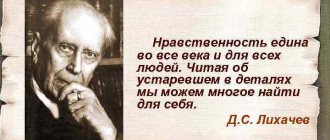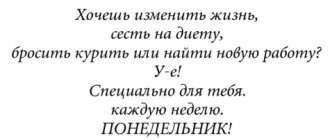Daring sayings and quotes by Luc de Vauvenargues
Luc de Vauvenargues (1715 - 1747) - French philosopher, writer and moralist. Full name: Luc de Clapier, Marquis de Vauvenargues. He turned out to be extraordinary to the point of impudence, to the point of unnaturalness.
He took part in the Italian and Bohemian campaigns of 1735 and 1742. While still a lieutenant, during the Bohemian campaign, Vauvenargues sent Voltaire a comparative study he had written about Corneille and Racine, in which he greatly extolled the latter at the expense of the former. Voltaire immediately recognized in the young officer the makings of a remarkable mind.
Aphorisms, phrases, sayings and quotes from Luc de Vauvenargues:
- People usually torture their neighbors under the pretext that they wish them well.
- Habit is everything, even in love.
- The art of pleasing is the art of deceiving.
- Others live happily without knowing it.
- Let people make any mistakes to their detriment, just to avoid the worst misfortune - submission to someone else's will.
- There are people who read only to find mistakes in the writer.
- A person is in love with the image he himself created; He is devoted only to him, and not to a frivolous woman, with all his heart.
- A person is happy only when he is in his place.
- Remember, there is always a lot in life that you should dare and something that you should despise, and weigh your mind and strength at the same time.
- If you want to express serious thoughts, first stop talking nonsense.
- Women are not able to comprehend that there are men who are indifferent to them.
- Secular people do not talk about such trifles as people; but the people do not engage in such nonsense as secular people do.
- It is impossible to wean people from studying the most unnecessary subjects.
- Sometimes it is easier to create a new party than to gradually achieve dominance in an already created one.
- The thought of death misleads us because it makes us forget life.
- What fear and hope do not convince a person of!
- Dreams of great things are deceptive, but they entertain us.
- A little common sense - and there will be nothing left of profundity.
- Staying at the height of your success or at the level of your wealth is what requires the most intelligence.
- Vain people are bad diplomats: they do not know how to remain silent.
- Mercy is preferable to justice.
- Injustice always offends our feelings - unless it brings us direct benefit.
- Good taste is the ability to correctly judge objects related to the area of feeling.
- We don't like to be pitied for the mistakes we've made.
- Experience is proof of evidence.
- Most people, deep down, despise virtue and spit on glory.
- Human virtues are precious stones that play more beautifully in the frame of modesty.
- Ardent ambition drives all joy out of our lives from our very youth: it wants to rule with absolute authority.
- It is easiest to destroy the party that is based on the arguments of prudence.
- How difficult it is to engage in a profitable business without pursuing your own benefit.
- A fool who has a great memory is full of thoughts and facts, but he does not know how to draw conclusions - and this is the whole point.
- There are no more reliable patrons than our own abilities.
- Trade is a school of deception.
- Our minds are discerning rather than consistent, and embrace more than we can comprehend.
- He who seeks glory on the path of virtue only demands reward according to his deserts.
- The prosperity of a bad ruler is a disaster for the people.
- Our actions are less good and less vicious than our desires.
- It is better to swallow other insults in silence, so as not to cover yourself with dishonor.
- Nothing humiliates a person more, makes him so pitiful, as vanity.
- Not having a single advantage is just as impossible as not having a single disadvantage.
- Women generally have more vanity than temperament, and more temperament than virtue.
- Only small people are always weighing what should be respected and what should be loved.
- Any passion that possesses a person, as it were, opens direct access to him.
- Prosperity illuminates the path to prudence.
- We make too little use of the wisdom of old people.
- Keeping one's profit in mind everywhere is a vital rule of common sense.
- The mind cannot comprehend the needs of the heart.
- There are no rules more changeable than those inspired by conscience.
- Patience is the art of hoping.
- Express a false thought clearly and it will refute itself.
- There are people whose talents would never have been discovered if they had not also had shortcomings.
- All rules of life should be derived only from courage.
- He who does not know the value of time is not born for glory.
- We know more useless things than we don't know useful things.
- Poverty puts barriers to our desires, but it also limits; Wealth multiplies our needs, but also provides opportunities to satisfy them.
- Before you take up arms against evil, consider whether you are able to eliminate the causes that gave rise to it.
- It’s as if a person was born to fool others and remain a fool himself.
- A flatterer is one who usually deceives only fools.
- Ridicule is the child of satisfied contempt.
- If the advice of passion is bolder than the advice of reason, then passion gives more strength to carry it out than reason.
- Lazy people are always going to do something.
- We are especially pleased with our friends if, while appreciating our good qualities, they also allow themselves to notice our shortcomings.
- Ignorance is not a lack of intelligence, and knowledge is not a sign of genius.
- People with an ardent character rarely have constant friendships.
- Do not rely on the respect and trust of a person who, while taking into account all your interests, does not tell you about his own.
- Idleness is more tiring than work.
- Images adorn the mind, feelings convince it.
- The mind achieves great things only in impulses.
- When you dare to do great things, you inevitably risk your good name.
- The most vile ingratitude, but at the same time the most primordial, is the ingratitude of children towards their parents.
- We are receptive to friendship, justice, humanity, compassion and reason. Isn’t this what virtue is, my friends?
- A crown bearer who does not love his people may be a great man, but he will never become a great sovereign.
- Success brings few friends.
- Young people do not know well what beauty is: they only know passion.
- The smarter a person is, the more prone he is to incomprehensible recklessness.
- It is a small advantage to have a lively mind if you do not have correct judgment: the perfection of a watch is not fast, but correct movement.
- If a thought cannot be expressed in simple words, then it is insignificant and must be discarded.
- In old age, the number of friends does not increase: all losses are then irrevocable.
- Necessity saves us from the difficulties of choice.
- Those who are not able to invent fables have only one way out - they were told.
- Eloquence is perhaps the rarest, as well as the most graceful, of all talents.
- He who is able to endure everything is given the power to dare anything.
- You can't be fair without being humane.
- It is better to be known with a lot of knowledge than to be good at a few.
- In extremes—but only in extremes—risky decisions can be made.
- He who is not capable of great accomplishments despises great plans.
- He who respects himself inspires respect in others.
- Great thoughts come from the heart.
- To be truly sane already means to know a lot.
- It is good for him who is firm by nature and flexible by sound reasoning.
- Few people have managed to accomplish a great deed at the prompting of someone else.
- Everything that is unfair insults us if it does not directly benefit us.
- Love is stronger than self-love: you can love a woman even when she despises you.
- To reward a person with ambition without endowing him with talent is the greatest evil that fate can inflict on him.
- There are fewer fools than people think: people simply do not understand each other.
VAUVENARGES LUC de CLAPIER
(1715-1747)
Vauvenargues Luc de Clapier, French moralist writer, was born on August 6, 1715. in Aix in Provence in the family of the Marquis of Vauvenargues. He took part in the Italian and Bohemian campaigns of 1735 and 1742. In 1742, having suffered from smallpox, which disfigured him forever, he retired and returned to Paris. There he became close to Voltaire and Marmontel. Illness also prevented him from pursuing the diplomatic path, and Vauvenargues devoted himself entirely to literary pursuits.
In his reasoning, Vauvenargues proceeds not from the philosophical constructions of his predecessors, but from his own experience, which, it must be admitted, is quite unusual against the backdrop of the stereotypes of social life of that time. Vauvenargues believed that we draw knowledge from experience and then return it to the same experience, but we return it already enriched, passed through the mind.
In 1746, Vauvenargues published his only book, “Reflections and Maxims,” which brought him fame as the greatest master of aphorisms of the Enlightenment. A year after the book was published, he died at the age of 32 (May 28, 1747).
We.
· We would be much less strict with the author’s thoughts if we ourselves thought the same way as he does.
· We have no right to make unhappy those whom we are powerless to correct.
· We do not like it when people feel sorry for us for the mistakes we have made.
· We know a lot about ourselves that people always keep silent about, and we guess in them what we keep silent about ourselves.
· We pay dearly for any benefits acquired with the help of reason alone.
· We are generous in condemning the disadvantaged, no matter how small their offenses, and stingy in pitying them, no matter how difficult their lot.
· We reproach the disadvantaged so as not to burden ourselves with compassion.
· We are not very grateful to our friends for their high opinion of our merits, if at the same time they are not completely blind to our shortcomings.
· We despise so many things in life so as not to be filled with contempt for ourselves.
· We pretend that we are too lazy to win fame, and at the same time we bend over backwards for the sake of insignificant self-interest.
· We cannot stand fanatics who preach contempt for everything that we jealously extol, while they themselves extol that which is even more worthy of contempt.
· We are sadly perplexed when we discover that we fall into the same sins again and again and that even misfortunes do not heal us from our shortcomings.
· We are too inattentive or too busy with ourselves to study each other.
· We are unable to suspect a feeling of hypocrisy.
· We give the name “peace” to that brief truce when the weaker renounces its claims, whether just or unjust, only to arm itself to the teeth and present them again at the first opportunity.
· We often praise people for their weakness and condemn them for their strength.
· We do not show intelligence, but weakness when we are ashamed that we are deprived of something, and this weakness is the root of many base actions.
· We can be perfectly aware of our own imperfections and not feel humiliated.
· We unwittingly agree with any truth if it is entirely expressed in words accessible to our understanding.
· We are very knowledgeable about trifles and ignorant about essential things.
· We would not strive for universal respect so much if we firmly knew that we deserve it.
· We do not care much about the well-being of those whom we help only with advice.
· We are in no way superior to the so-called barbarians either in courage, or in humanity, or in health, or in the ability to enjoy; in short, we have become neither wiser nor happier than these peoples, and yet we firmly believe that we are much more intelligent than them.
· We will never give up those benefits that we firmly expect to take possession of.
· We easily forgive past harm and impotent hostility.
· We act better than we think.
· We despise the traditions of our country and teach our children the traditions of antiquity.
· We judge life too impartially when we have to part with it.
· We do not trust even the smartest people when they advise how to behave, but we do not doubt the infallibility of our own advice.
· We consider ourselves entitled to make a person happy at his own expense and do not want him to be happy on his own.
· We love it when, in the absence of original thoughts, they present to us those that seem original.
· We turn over our thoughts like worn-out clothes and put them back into use.
· We notice many vices in people, but recognize few virtues.
· We have come up with such wise rules for theatrical works that they perhaps surpass the capabilities of the human mind.
· We are so absorbed in ourselves and others like us that we do not pay any attention to everything else, although we are surrounded by it and it is constantly before our eyes.
· We are unable to ignore the contempt of others: we have too little self-esteem.
· We usually take credit for our successes and failures, praising or blaming ourselves for the whims of Fortune.
· We are dissatisfied with our enterprise if people do not notice it: in order to boast of it, we often sacrifice the fruits that it can bear.
· We do not suffer too much from insults caused to us out of good feelings.
· We believe a lot without evidence, and this is natural, but we doubt a lot of things that have been proven, and this is also natural.
· We notice contradictions, often imaginary, and other mistakes in a writer much more diligently than we benefit from his judgments, both correct and erroneous.







